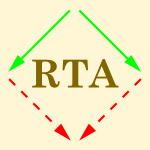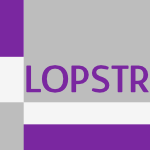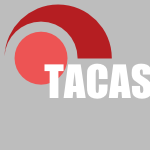Tag #π-calculus
83 papers:
 POPL-2019-LagoVMY #fault #runtime
POPL-2019-LagoVMY #fault #runtime- Intersection types and runtime errors in the pi-calculus (UDL, MdV, DM, AY), p. 29.
 ESOP-2019-SakayoriT #category theory
ESOP-2019-SakayoriT #category theory- A Categorical Model of an i/o-typed π-calculus (KS, TT), pp. 640–667.
 CASE-2016-CampbellTLPOF #approach #concurrent #configuration management #modelling
CASE-2016-CampbellTLPOF #approach #concurrent #configuration management #modelling- Modeling concurrency and reconfiguration in vehicular systems: A π-calculus approach (JC, CET, PL0, TPP, ÜÖ, GEF), pp. 523–530.
 ESOP-2016-DOsualdoO #communication #on the
ESOP-2016-DOsualdoO #communication #on the- On Hierarchical Communication Topologies in the π-calculus (ED, CHLO), pp. 149–175.
 TLCA-2015-Assaf
TLCA-2015-Assaf - Conservativity of Embeddings in the λ π Calculus Modulo Rewriting (AA0), pp. 31–44.
 RTA-TLCA-2014-HondaYB #interactive #process
RTA-TLCA-2014-HondaYB #interactive #process- Process Types as a Descriptive Tool for Interaction — Control and the π-Calculus (KH, NY, MB), pp. 1–20.
 FoSSaCS-2014-Padovani #linear #re-engineering #recursion
FoSSaCS-2014-Padovani #linear #re-engineering #recursion- Type Reconstruction for the Linear π-Calculus with Composite and Equi-Recursive Types (LP), pp. 88–102.
 LICS-CSL-2014-Padovani #concurrent #linear
LICS-CSL-2014-Padovani #concurrent #linear- Deadlock and lock freedom in the linear π-calculus (LP), p. 10.
 LATA-2013-DengZDZ #concurrent
LATA-2013-DengZDZ #concurrent- The Buffered π-Calculus: A Model for Concurrent Languages (XD, YZ, YD, FZ), pp. 250–261.
 LOPSTR-2013-Saeedloei #encoding #logic
LOPSTR-2013-Saeedloei #encoding #logic- A Logical Encoding of Timed π-Calculus (NS), pp. 164–182.
 FoSSaCS-2013-DreierELL #composition #on the #process
FoSSaCS-2013-DreierELL #composition #on the #process- On Unique Decomposition of Processes in the Applied π-Calculus (JD, CE, PL, YL), pp. 50–64.
 TACAS-2013-MateescuS #model checking #model transformation #named
TACAS-2013-MateescuS #model checking #model transformation #named- PIC2LNT: Model Transformation for Model Checking an Applied π-Calculus (RM, GS), pp. 192–198.
 PPDP-2012-MonjarazM #haskell
PPDP-2012-MonjarazM #haskell- From the π-calculus to flat GHC (RM, JM), pp. 163–172.
 FoSSaCS-2012-CrafaVY #parallel #semantics
FoSSaCS-2012-CrafaVY #parallel #semantics- Event Structure Semantics of Parallel Extrusion in the π-Calculus (SC, DV, NY), pp. 225–239.
 BX-2011-Schmitt #higher-order
BX-2011-Schmitt #higher-order- Reversible Higher Order π Calculus (AS), p. 63.
 QAPL-2011-SongNN #probability
QAPL-2011-SongNN #probability- A Stochastic Broadcast π-Calculus (LS, FN, BFN), pp. 74–88.
 IFM-2010-MateescuS
IFM-2010-MateescuS - Translating π-Calculus into LOTOS NT (RM, GS), pp. 229–244.
 ICALP-v2-2009-AcciaiB #behaviour #infinity #safety
ICALP-v2-2009-AcciaiB #behaviour #infinity #safety- Deciding Safety Properties in Infinite-State π-Calculus via Behavioural Types (LA, MB), pp. 31–42.
 ICALP-B-2008-JohanssonPVB
ICALP-B-2008-JohanssonPVB - Extended π-Calculi (MJ, JP, BV, JB), pp. 87–98.
 ESOP-2008-BuscemiM #bisimulation #concurrent #constraints
ESOP-2008-BuscemiM #bisimulation #concurrent #constraints- Open Bisimulation for the Concurrent Constraint π-Calculus (MGB, UM), pp. 254–268.
 TAP-2008-Cao #equivalence #finite #higher-order
TAP-2008-Cao #equivalence #finite #higher-order- Equivalence Checking for a Finite Higher Order π-Calculus (ZC), pp. 30–47.
 TLCA-2007-FaggianP #linear
TLCA-2007-FaggianP #linear- Ludics is a Model for the Finitary Linear π-Calculus (CF, MP), pp. 148–162.
 PPDP-2007-AmadioD
PPDP-2007-AmadioD - Feasible reactivity in a synchronous π-calculus (RMA, FD), pp. 221–230.
 QAPL-2007-VaraccaY #probability
QAPL-2007-VaraccaY #probability- Probabilistic π-Calculus and Event Structures (DV, NY), pp. 147–166.
 FoSSaCS-2007-BengtsonP #formal method #logic #using
FoSSaCS-2007-BengtsonP #formal method #logic #using- Formalising the π-Calculus Using Nominal Logic (JB, JP), pp. 63–77.
 FoSSaCS-2007-HirschkoffP #congruence
FoSSaCS-2007-HirschkoffP #congruence- A Distribution Law for CCS and a New Congruence Result for the π-Calculus (DH, DP), pp. 228–242.
 LICS-2007-BonsangueK #logic
LICS-2007-BonsangueK #logic- π-Calculus in Logical Form (MMB, AK), pp. 303–312.
 PPDP-2006-BundgaardS #graph
PPDP-2006-BundgaardS #graph- Typed polyadic π-calculus in bigraphs (MB, VS), pp. 1–12.
 SAC-2006-Lecca #algorithm #probability
SAC-2006-Lecca #algorithm #probability- A time-dependent extension of gillespie algorithm for biochemical stochastic π-calculus (PL), pp. 137–144.
 FoSSaCS-2006-Cao #bisimulation #higher-order
FoSSaCS-2006-Cao #bisimulation #higher-order- More on Bisimulations for Higher Order π-Calculus (ZC), pp. 63–78.
 TACAS-2006-YangBR #verification
TACAS-2006-YangBR #verification- Parameterized Verification of π-Calculus Systems (PY, SB, CRR), pp. 42–57.
 LICS-2006-PalamidessiSVV #on the #persistent
LICS-2006-PalamidessiSVV #on the #persistent- On the Expressiveness of Linearity vs Persistence in the Asychronous π-Calculus (CP, VAS, FDV, BV), pp. 59–68.
 VMCAI-2006-KobayashiSW #analysis #resource management
VMCAI-2006-KobayashiSW #analysis #resource management- Resource Usage Analysis for the pi-Calculus (NK, KS, LW), pp. 298–312.
 ICALP-2005-BaldamusPV #encoding
ICALP-2005-BaldamusPV #encoding- A Fully Abstract Encoding of the π-Calculus with Data Terms (MB, JP, BV), pp. 1202–1213.
 IFM-2005-LamP #consistency #diagrams #sequence chart #statechart #using
IFM-2005-LamP #consistency #diagrams #sequence chart #statechart #using- Consistency Checking of Sequence Diagrams and Statechart Diagrams Using the π-Calculus (VSWL, JAP), pp. 347–365.
 ESOP-2005-KremerR #analysis #protocol
ESOP-2005-KremerR #analysis #protocol- Analysis of an Electronic Voting Protocol in the Applied π Calculus (SK, MR), pp. 186–200.
 FoSSaCS-2005-JeffreyR #abstraction #polymorphism
FoSSaCS-2005-JeffreyR #abstraction #polymorphism- Full Abstraction for Polymorphic π-Calculus (AJ, JR), pp. 266–281.
 FoSSaCS-2005-Stark #algebra #modelling
FoSSaCS-2005-Stark #algebra #modelling- Free-Algebra Models for the π-Calculus (IS), pp. 155–169.
 SAC-2004-LeccaPLC #predict #probability
SAC-2004-LeccaPLC #predict #probability- Predicting cell adhesion probability via the biochemical stochastic π-calculus (PL, CP, CL, GC), pp. 211–212.
 ESOP-2004-AbadiBF #performance
ESOP-2004-AbadiBF #performance- Just Fast Keying in the π Calculus (MA, BB, CF), pp. 340–354.
 FoSSaCS-2004-Caires #behaviour #logic
FoSSaCS-2004-Caires #behaviour #logic- Behavioral and Spatial Observations in a Logic for the π-Calculus (LC), pp. 72–89.
 LICS-2004-BaldamusPV
LICS-2004-BaldamusPV - Sπ Calculus Translated to ?--Calculus Preserving May-Tests (MB, JP, BV), pp. 22–31.
 ESOP-2003-Lhoussaine #distributed #type inference
ESOP-2003-Lhoussaine #distributed #type inference- Type Inference for a Distributed π-Calculus (CL), pp. 253–268.
 FoSSaCS-2003-BergerHY
FoSSaCS-2003-BergerHY - Genericity and the π-Calculus (MB, KH, NY), pp. 103–119.
 VMCAI-2003-YangRS #encoding #logic #mobile #model checking #process #using
VMCAI-2003-YangRS #encoding #logic #mobile #model checking #process #using- A Logical Encoding of the pi-Calculus: Model Checking Mobile Processes Using Tabled Resolution (PY, CRR, SAS), pp. 116–131.
 WRLA-2002-ThatiSM #execution #maude #semantics #specification #testing
WRLA-2002-ThatiSM #execution #maude #semantics #specification #testing- An Executable Specification of Asynchronous π-Calculus Semantics and May Testing in Maude 2.0 (PT, KS, NMO), pp. 261–281.
 TLCA-2001-BergerHY
TLCA-2001-BergerHY - Sequentiality and the π-Calculus (MB, KH, NY), pp. 29–45.
 POPL-2001-IgarashiK #type system
POPL-2001-IgarashiK #type system- A generic type system for the π-calculus (AI, NK), pp. 128–141.
 PPDP-2001-HepburnW #trust
PPDP-2001-HepburnW #trust- Trust in the π-Calculus (MH, DW), pp. 103–114.
 SAS-2001-RajamaniR #behaviour
SAS-2001-RajamaniR #behaviour- A Behavioral Module System for the π-Calculus (SKR, JR), pp. 375–394.
 FoSSaCS-2001-RocklHB #formal method #higher-order #induction #syntax
FoSSaCS-2001-RocklHB #formal method #higher-order #induction #syntax- Higher-Order Abstract Syntax with Induction in Isabelle/HOL: Formalizing the π-Calculus and Mechanizing the Theory of Contexts (CR, DH, SB), pp. 364–378.
 LICS-2001-YoshidaBH #normalisation
LICS-2001-YoshidaBH #normalisation- Strong Normalisation in the π-Calculus (NY, MB, KH), pp. 311–322.
 ICALP-2000-HennessyR #data flow #resource management
ICALP-2000-HennessyR #data flow #resource management- Information Flow vs. Resource Access in the Asynchronous π-Calculus (MH, JR), pp. 415–427.
 FoSSaCS-2000-HerescuP #probability
FoSSaCS-2000-HerescuP #probability- Probabilistic Asynchronous π-Calculus (OMH, CP), pp. 146–160.
 FM-v2-1999-Feijs #modelling #using
FM-v2-1999-Feijs #modelling #using- Modelling Microsoft COM Using π-Calculus (LMGF), pp. 1343–1363.
 FoSSaCS-1999-RocklS #algol #concurrent #process #semantics
FoSSaCS-1999-RocklS #algol #concurrent #process #semantics- A π-calculus Process Semantics of Concurrent Idealised ALGOL (CR, DS), pp. 306–321.
 TACAS-1999-MontanariP #finite #verification
TACAS-1999-MontanariP #finite #verification- Finite State Verification for the Asynchronous π-Calculus (UM, MP), pp. 255–269.
 LICS-1999-BruniM #category theory
LICS-1999-BruniM #category theory- Cartesian Closed Double Categories, Their λ-Notation, and the π-Calculus (RB, UM), pp. 246–265.
 ICALP-1998-LiC #bisimulation #congruence
ICALP-1998-LiC #bisimulation #congruence- Checking Strong/Weak Bisimulation Equivalences and Observation Congruence for the π-Calculus (ZL, HC), pp. 707–718.
 ICALP-1998-Lin #proving
ICALP-1998-Lin #proving- Complete Proof Systems for Observation Congruences in Finite-Control π-Calculus (HL), pp. 443–454.
 ICALP-1998-Sewell #distributed #type system
ICALP-1998-Sewell #distributed #type system- Global/Local Subtyping and Capability Inference for a Distributed π-calculus (PS), pp. 695–706.
 JICSLP-1998-Milner
JICSLP-1998-Milner - The π Calculus and Its Applications (RM), pp. 3–4.
 ICALP-1997-PhilippouW #confluence #on the
ICALP-1997-PhilippouW #confluence #on the- On Confluence in the π-Calculus (AP, DW), pp. 314–324.
 PEPM-1997-GenglerM #partial evaluation #self
PEPM-1997-GenglerM #partial evaluation #self- Self-Applicable Partial Evaluation for the π-Calculus (MG, MM), pp. 36–46.
 POPL-1997-Boudol
POPL-1997-Boudol - The π-calculus in Direct Style (GB), pp. 228–241.
 POPL-1997-Palamidessi #power of
POPL-1997-Palamidessi #power of- Comparing the Expressive Power of the Synchronous and the Asynchronous π-calculus (CP), pp. 256–265.
 POPL-1997-PierceS #behaviour #equivalence #polymorphism
POPL-1997-PierceS #behaviour #equivalence #polymorphism- Behavioral Equivalence in the Polymorphic π-calculus (BCP, DS), pp. 242–255.
 ICLP-1997-Mahajan #concurrent #logic programming
ICLP-1997-Mahajan #concurrent #logic programming- Concurrent Logic Programming and π Calculus (SM, SR), p. 411.
 POPL-1996-KobayashiPT
POPL-1996-KobayashiPT - Linearity and the π-Calculus (NK, BCP, DNT), pp. 358–371.
 TAPSOFT-J-1995-Sangiorgi96a #calculus
TAPSOFT-J-1995-Sangiorgi96a #calculus- pi-Calculus, Internal Mobility, and Agent-Passing Calculi (DS), pp. 235–274.
 CAV-1996-PistoreS #algorithm #refinement
CAV-1996-PistoreS #algorithm #refinement- A Partition Refinement Algorithm for the π-Calculus (MP, DS), pp. 38–49.
 LICS-1996-FioreMS
LICS-1996-FioreMS - A Fully-Abstract Model for the π-Calculus (MPF, EM, DS), pp. 43–54.
 LICS-1996-Stark #abstract domain #domain model
LICS-1996-Stark #abstract domain #domain model- A Fully Abstract Domain Model for the π-Calculus (IS), pp. 36–42.
 FPCA-1995-HylandO #game studies
FPCA-1995-HylandO #game studies- π-Calculus, Dialogue Games and PCF (JMEH, CHLO), pp. 96–107.
 ASF+SDF-1995-Deursen
ASF+SDF-1995-Deursen - A Simple π-Calculus Manipulation Tool (AvD), pp. 211–232.
 TAPSOFT-1995-Lin #bisimulation
TAPSOFT-1995-Lin #bisimulation- Complete Inference Systems for Weak Bisimulation Equivalences in the pi-Calculus (HL), pp. 187–201.
 ICLP-1995-Hirata #correctness #haskell #proving
ICLP-1995-Hirata #correctness #haskell #proving- Proving Correctness of Translation from Moded Flat GHC to π-Calculus (KH), p. 818.
 ESOP-1994-Li #prolog #specification
ESOP-1994-Li #prolog #specification- A π-Calculus Specification of Prolog (BZL), pp. 379–393.
 ESOP-1994-Milner #named #visual notation
ESOP-1994-Milner #named #visual notation- Pi-Nets: A Graphical Form of π-Calculus (RM), pp. 26–42.
 CAV-1994-VictorM
CAV-1994-VictorM - The Mobility Workbench — A Tool for the π-Calculus (BV, FM), pp. 428–440.
 POPL-1993-Gay #algorithm
POPL-1993-Gay #algorithm- A Sort Inference Algorithm for the Polyadic π-Calculus (SJG), pp. 429–438.
 TAPSOFT-1993-Sangiorgi #higher-order
TAPSOFT-1993-Sangiorgi #higher-order- From pi-Calculus to Higher-Order pi-Calculus - and Back (DS), pp. 151–166.
 ILPS-1993-Li #prolog #specification
ILPS-1993-Li #prolog #specification- A π-calculus Specification of Prolog (ZL), p. 680.
 POPL-2019-LagoVMY #fault #runtime
POPL-2019-LagoVMY #fault #runtime ESOP-2019-SakayoriT #category theory
ESOP-2019-SakayoriT #category theory CASE-2016-CampbellTLPOF #approach #concurrent #configuration management #modelling
CASE-2016-CampbellTLPOF #approach #concurrent #configuration management #modelling ESOP-2016-DOsualdoO #communication #on the
ESOP-2016-DOsualdoO #communication #on the TLCA-2015-Assaf
TLCA-2015-Assaf  RTA-TLCA-2014-HondaYB #interactive #process
RTA-TLCA-2014-HondaYB #interactive #process FoSSaCS-2014-Padovani #linear #re-engineering #recursion
FoSSaCS-2014-Padovani #linear #re-engineering #recursion LICS-CSL-2014-Padovani #concurrent #linear
LICS-CSL-2014-Padovani #concurrent #linear LATA-2013-DengZDZ #concurrent
LATA-2013-DengZDZ #concurrent LOPSTR-2013-Saeedloei #encoding #logic
LOPSTR-2013-Saeedloei #encoding #logic FoSSaCS-2013-DreierELL #composition #on the #process
FoSSaCS-2013-DreierELL #composition #on the #process TACAS-2013-MateescuS #model checking #model transformation #named
TACAS-2013-MateescuS #model checking #model transformation #named PPDP-2012-MonjarazM #haskell
PPDP-2012-MonjarazM #haskell FoSSaCS-2012-CrafaVY #parallel #semantics
FoSSaCS-2012-CrafaVY #parallel #semantics BX-2011-Schmitt #higher-order
BX-2011-Schmitt #higher-order QAPL-2011-SongNN #probability
QAPL-2011-SongNN #probability IFM-2010-MateescuS
IFM-2010-MateescuS  ICALP-v2-2009-AcciaiB #behaviour #infinity #safety
ICALP-v2-2009-AcciaiB #behaviour #infinity #safety ICALP-B-2008-JohanssonPVB
ICALP-B-2008-JohanssonPVB  ESOP-2008-BuscemiM #bisimulation #concurrent #constraints
ESOP-2008-BuscemiM #bisimulation #concurrent #constraints TAP-2008-Cao #equivalence #finite #higher-order
TAP-2008-Cao #equivalence #finite #higher-order TLCA-2007-FaggianP #linear
TLCA-2007-FaggianP #linear PPDP-2007-AmadioD
PPDP-2007-AmadioD  QAPL-2007-VaraccaY #probability
QAPL-2007-VaraccaY #probability FoSSaCS-2007-BengtsonP #formal method #logic #using
FoSSaCS-2007-BengtsonP #formal method #logic #using FoSSaCS-2007-HirschkoffP #congruence
FoSSaCS-2007-HirschkoffP #congruence LICS-2007-BonsangueK #logic
LICS-2007-BonsangueK #logic PPDP-2006-BundgaardS #graph
PPDP-2006-BundgaardS #graph SAC-2006-Lecca #algorithm #probability
SAC-2006-Lecca #algorithm #probability FoSSaCS-2006-Cao #bisimulation #higher-order
FoSSaCS-2006-Cao #bisimulation #higher-order TACAS-2006-YangBR #verification
TACAS-2006-YangBR #verification LICS-2006-PalamidessiSVV #on the #persistent
LICS-2006-PalamidessiSVV #on the #persistent VMCAI-2006-KobayashiSW #analysis #resource management
VMCAI-2006-KobayashiSW #analysis #resource management ICALP-2005-BaldamusPV #encoding
ICALP-2005-BaldamusPV #encoding IFM-2005-LamP #consistency #diagrams #sequence chart #statechart #using
IFM-2005-LamP #consistency #diagrams #sequence chart #statechart #using ESOP-2005-KremerR #analysis #protocol
ESOP-2005-KremerR #analysis #protocol FoSSaCS-2005-JeffreyR #abstraction #polymorphism
FoSSaCS-2005-JeffreyR #abstraction #polymorphism FoSSaCS-2005-Stark #algebra #modelling
FoSSaCS-2005-Stark #algebra #modelling SAC-2004-LeccaPLC #predict #probability
SAC-2004-LeccaPLC #predict #probability ESOP-2004-AbadiBF #performance
ESOP-2004-AbadiBF #performance FoSSaCS-2004-Caires #behaviour #logic
FoSSaCS-2004-Caires #behaviour #logic LICS-2004-BaldamusPV
LICS-2004-BaldamusPV  ESOP-2003-Lhoussaine #distributed #type inference
ESOP-2003-Lhoussaine #distributed #type inference FoSSaCS-2003-BergerHY
FoSSaCS-2003-BergerHY  VMCAI-2003-YangRS #encoding #logic #mobile #model checking #process #using
VMCAI-2003-YangRS #encoding #logic #mobile #model checking #process #using WRLA-2002-ThatiSM #execution #maude #semantics #specification #testing
WRLA-2002-ThatiSM #execution #maude #semantics #specification #testing TLCA-2001-BergerHY
TLCA-2001-BergerHY  POPL-2001-IgarashiK #type system
POPL-2001-IgarashiK #type system PPDP-2001-HepburnW #trust
PPDP-2001-HepburnW #trust SAS-2001-RajamaniR #behaviour
SAS-2001-RajamaniR #behaviour FoSSaCS-2001-RocklHB #formal method #higher-order #induction #syntax
FoSSaCS-2001-RocklHB #formal method #higher-order #induction #syntax LICS-2001-YoshidaBH #normalisation
LICS-2001-YoshidaBH #normalisation ICALP-2000-HennessyR #data flow #resource management
ICALP-2000-HennessyR #data flow #resource management FoSSaCS-2000-HerescuP #probability
FoSSaCS-2000-HerescuP #probability FM-v2-1999-Feijs #modelling #using
FM-v2-1999-Feijs #modelling #using FoSSaCS-1999-RocklS #algol #concurrent #process #semantics
FoSSaCS-1999-RocklS #algol #concurrent #process #semantics TACAS-1999-MontanariP #finite #verification
TACAS-1999-MontanariP #finite #verification LICS-1999-BruniM #category theory
LICS-1999-BruniM #category theory ICALP-1998-LiC #bisimulation #congruence
ICALP-1998-LiC #bisimulation #congruence ICALP-1998-Lin #proving
ICALP-1998-Lin #proving ICALP-1998-Sewell #distributed #type system
ICALP-1998-Sewell #distributed #type system JICSLP-1998-Milner
JICSLP-1998-Milner  ICALP-1997-PhilippouW #confluence #on the
ICALP-1997-PhilippouW #confluence #on the PEPM-1997-GenglerM #partial evaluation #self
PEPM-1997-GenglerM #partial evaluation #self POPL-1997-Boudol
POPL-1997-Boudol  POPL-1997-Palamidessi #power of
POPL-1997-Palamidessi #power of POPL-1997-PierceS #behaviour #equivalence #polymorphism
POPL-1997-PierceS #behaviour #equivalence #polymorphism ICLP-1997-Mahajan #concurrent #logic programming
ICLP-1997-Mahajan #concurrent #logic programming POPL-1996-KobayashiPT
POPL-1996-KobayashiPT  TAPSOFT-J-1995-Sangiorgi96a #calculus
TAPSOFT-J-1995-Sangiorgi96a #calculus CAV-1996-PistoreS #algorithm #refinement
CAV-1996-PistoreS #algorithm #refinement LICS-1996-FioreMS
LICS-1996-FioreMS  LICS-1996-Stark #abstract domain #domain model
LICS-1996-Stark #abstract domain #domain model FPCA-1995-HylandO #game studies
FPCA-1995-HylandO #game studies ASF+SDF-1995-Deursen
ASF+SDF-1995-Deursen  TAPSOFT-1995-Lin #bisimulation
TAPSOFT-1995-Lin #bisimulation ICLP-1995-Hirata #correctness #haskell #proving
ICLP-1995-Hirata #correctness #haskell #proving ESOP-1994-Li #prolog #specification
ESOP-1994-Li #prolog #specification ESOP-1994-Milner #named #visual notation
ESOP-1994-Milner #named #visual notation CAV-1994-VictorM
CAV-1994-VictorM  POPL-1993-Gay #algorithm
POPL-1993-Gay #algorithm TAPSOFT-1993-Sangiorgi #higher-order
TAPSOFT-1993-Sangiorgi #higher-order ILPS-1993-Li #prolog #specification
ILPS-1993-Li #prolog #specification











